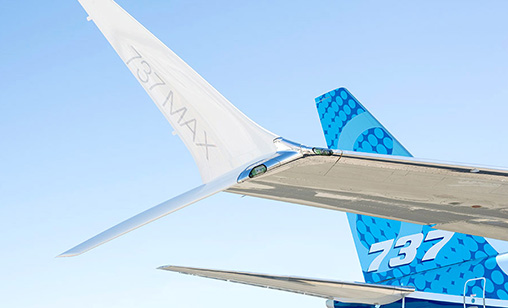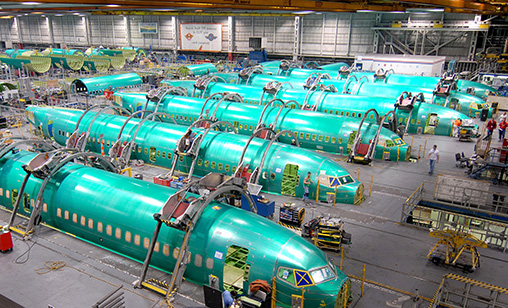Addendum
Blows to Boeing’s reputation keep coming
April 1st 2024
As Boeing concedes market share to Airbus, the aerospace company continues to suffer more hits to its once iconic global reputation. Read More »
Near to press time, another Boeing whistle blower, an ex-quality control manager at major Boeing fuselage supplier, Spirit AeroSystems, Santiago Paredes, took to global television networks to allege new 737s left the Spirit factory with “serious defects” because its staff were placed under pressure to speed up production output. Boeing declined to comment on the allegations. Spirit “strongly denied them” and said it would “vigorously defend them”.
 |
 |
Additionally, a U.S. Federal Aviation Administration six-week audit of 737 production processes at Spirit and Boeing has identified multiple incidents of failed quality control at the two factories. More recently, another investigation came across possible safety issues with the wiring of some 787s that could require checking the in-service global Dreamliner fleet, significantly impacting airline network schedules and thus their revenue.
The cascade of bad news has resulted in a downgrade of Boeing’s credit standing. Fitch Ratings cut Boeing to negative from stable after the aviation OEM revealed severe cash flow shrinkage. The Fitch downgrade was announced not long after Moody’s downgraded Boeing to Baa3. S &P followed with its own downgrade, from stable to negative, a few days later. S&P said Boeing will take longer for its cash flow and credit ratios to recover than previously forecast. As a result, reported the Financial Times, analysts are asking if Boeing may have to issue new equity despite the fact its shares are trading at half pre-pandemic prices.
Fitch Ratings said: “The negative outlook reflects Boeing’s heightened execution risks in the next 12 to 24 months as it eliminates legacy inventory, stabilises and increases aircraft production rates, navigates seasonal cash flow volatility, pursues additional corporate actions that should enhance longer-term operations and fulfills its commitment to repay debt and return to [investment grade] metrics.”
Separately, the Financial Times has reported a former U.S. Treasury official, Brad Setser, has suggested Boeing is strategically important enough to warrant government financing as Airbus has received in the past.
Late in April, GlobalData’s dashboard, Commercial Aircraft Orders and Deliveries, showed airlines and leasing companies in India, China and Singapore, from 2020 to 2024, had fortified the position of Airbus in the Asia-Pacific commercial aircraft market as Boeing’s woes had not abated.
“As it is being scrutinized for multiple mishaps involving its 737 MAX aircraft line, Boeing continues to lose ground in the region to its biggest competitor, GlobalData said. Asia-Pacific customers ordered 1,489 Airbus airplanes between 2020 and to date 2024 compared with 561 orders for Boeing aircraft in the same time frame.
“Notable Airbus customers in the region, including IndiGo, Air India, China Eastern Airlines, China Southern Airlines and BOC Aviation, either have chosen not to order from Boeing or have ordered fewer units from Boeing compared with Airbus, GlobalData’s Gone Sai Kiran, said.
“IndiGo has the highest number of Airbus orders, at almost 1,000 aircraft against none for Boeing,” he said.
“On the other hand, Air India has ordered 250 Airbus jets and 220 Boeing aircraft. BOC Aviation and China Eastern Airlines have committed to 107 and 100 Airbus aircraft, respectively, omitting Boeing from their procurement portfolios. But a major reason for Chinese airlines to avoid Boeing purchases could be the U.S.-China trade war,” globalData said.